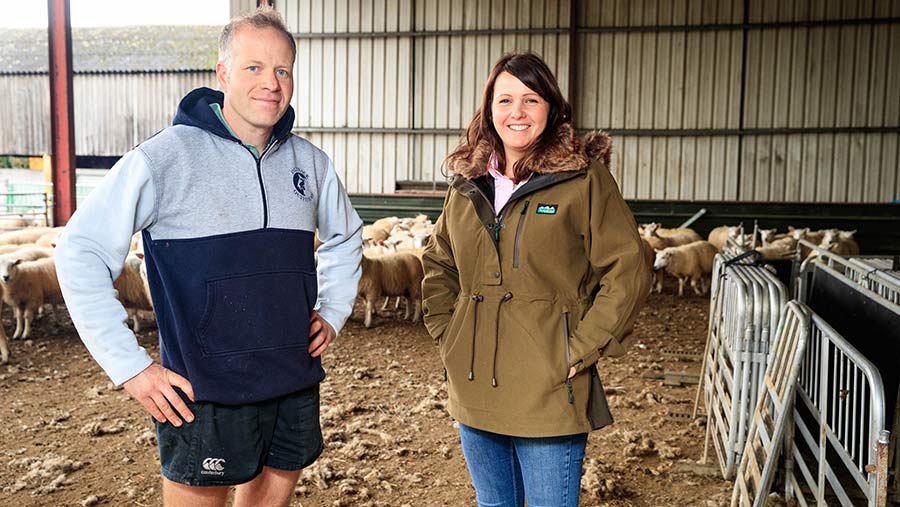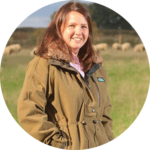Farmer Focus: Subdividing pastures to start rotating ewes
 © Tim Scrivener
© Tim Scrivener Lambing 2023 is complete. We are really pleased with how the ewes and lambs coped with the wet conditions. I think this has been the best lambing we’ve had to date.
Only a handful of ewes needed lambing assistance – ewes were milky and lambs had good vigour.
All these factors show that culling hard and only keeping lambs from top-performing ewes is paying off. Now lambing is over, the hard work starts – keeping them alive and growing well.
See also: Why demand is hotting up for worm-resistant rams
We have been taking regular faecal egg counts from the March-born lambs to monitor worm burdens, especially after some warm and wet weather.
We use Fecpak, which is brilliant, as you can get your results back within hours of sampling. This means you can treat the same day if needed.
The last count on the March-born lambs came back as 70 eggs per gram (epg) for nematodirus and 210 epg for strongyles.
We decided to dose the lambs with a white wormer (with help from our consultant), along with their administering them with first vaccination.
A drench test 10 days later should inform us whether it’s performed as it should. This is a vital step to monitor resistance on the farm. We started subdividing fields for rotational grazing.
This is our fourth year doing it and we have seen such an improvement to the grass since implementing it.
We use 0.5ha paddocks and move every two-to-three days.
We have spent time and money putting troughs in the middle of fields, so water doesn’t need to be moved, which saves us a lot of time, and, therefore, was well worth it.
We drilled some more herbal leys in the first week of May. These went in well and have had quite a substantial amount of rain and were soon germinating.
This is in stark contrast to the leys we put in last spring, which saw minimal rain. We still have more to do and we are hoping to direct drill into existing swards as there is so much moisture already there.
Reseeding is nerve-wracking in such unpredictable weather. Get it wrong and we will be short of grass. We want to avoid feeding haylage if we can.

